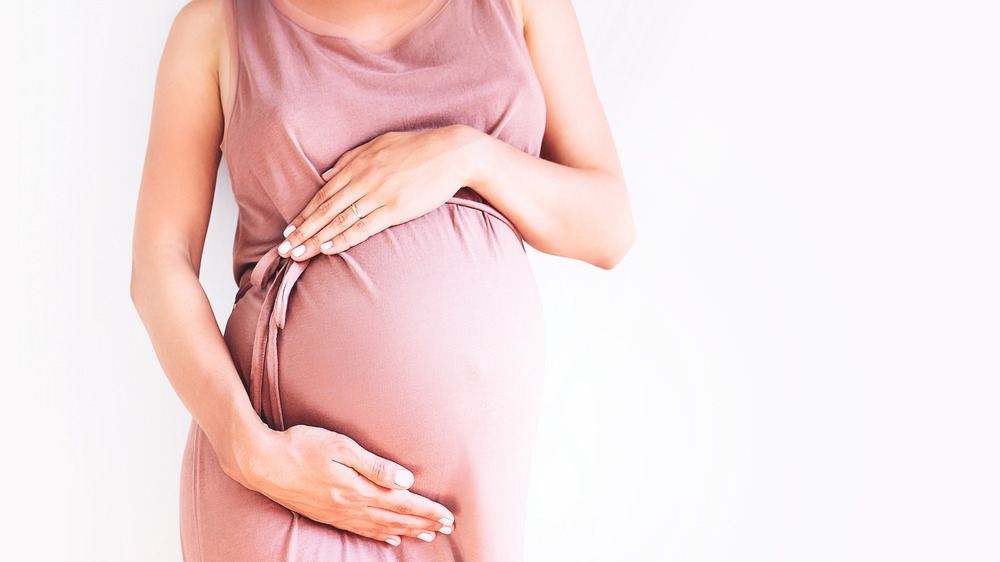Here's What It Really Means If Your Baby Is Measuring Big
Congrats! Being pregnant is an exciting time — right now, you are probably looking forward to a baby shower, planning the nursery, and finalizing names. You are also attending monthly prenatal visits (or more if you are high risk) and, at some visits, getting to see your baby via an ultrasound.
These ultrasounds do more than just ensure your baby looks cute in your belly, they also give insight to your doctor about their health and well-being, including their growth. This is known as the fundal height, and lets your doctor know your baby's growth rate (via What to Expect). After an ultrasound, your doctor or ultrasound tech will likely let you know what week you are measuring at, and sometimes the week they tell you may not line up with the week you are at.
During your third trimester, you may hear that your baby is measuring bigger than expected. Before you start to worry (or diet!) it's important to understand what this actually means.
Measuring big can be due to a number of reasons
As we progress deeper into pregnancy, our baby's weight will seemingly skyrocket. According to What to Expect, the weight of a baby is hard to predict in the later stages, as the baby is usually taking up all the space there is to take in your body. One pound is a lot for a tiny newborn, and, often, measurements can be off by one pound or more, making the "big" determination not entirely accurate.
A few reasons your baby is measuring big at this stage could be that your original due date was off, your baby is in a weird or high position in the uterus, you have an abundance of amniotic fluid, or you just have a bigger baby, which is completely normal (via The Bump). Some concerning reasons for a larger measurement could be gestational diabetes, which is likely already being controlled under your doctor's supervision. If your baby is measuring much larger than average — according to the Mayo Clinic, this means eight pounds thirteen ounces or larger — you may be at risk for fetal macrosomia, which can put you at risk for a C-section and health complications in your newborn after birth.
Overall, measuring large is usually nothing to be concerned about. Mothers carrying bigger babies often go on to have uncomplicated births and healthy newborns. Plus, they are more likely to have those kissable chubby cheeks, and there's nothing cuter than that.

